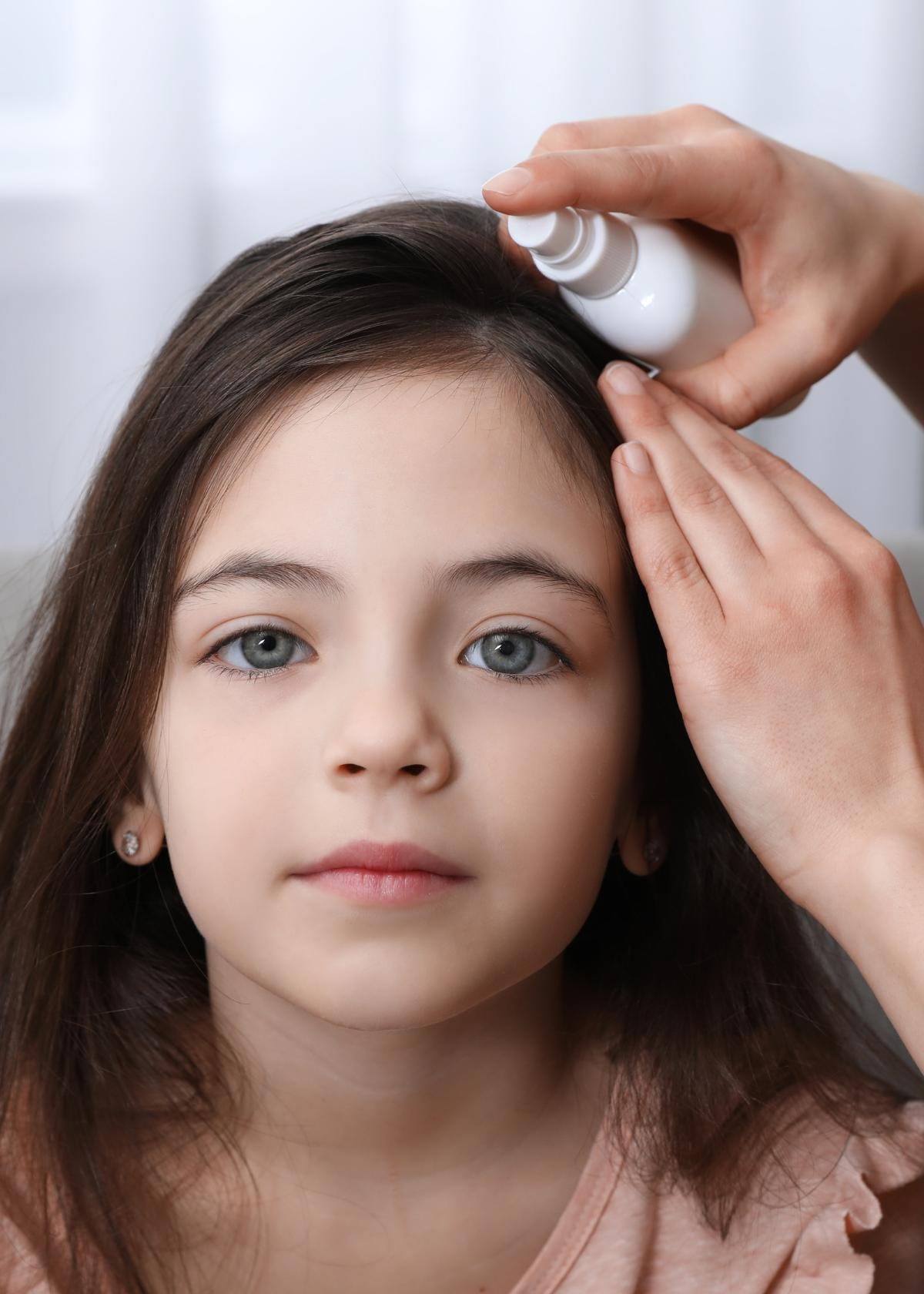Is your 11-year-old daughter's hair frequently greasy, and you're wondering why? This is a common issue parents face, particularly when their kids reach puberty, and hormonal changes cause an increase in oil production.
In this article, we'll delve into the causes of greasy hair in preteens and share practical strategies to keep it under control. Ready to get to the root of this oily problem? Let’s dig right in.
Understanding Greasy Hair in Children

Hormonal changes during puberty can lead to excessive sebum production, causing an oily scalp and greasy hair in children.
The Role of Hormones and Puberty
Puberty triggers hormonal changes that affect every part of a child's body, including the hair and scalp. Around this age, hormones stimulate oil glands in the skin to produce more sebum, an oily substance that moisturizes the skin and helps protect it from drying out.
When these glands are overactive - often due to genetics or puberty - they can create excess sebum. This surplus may travel from the scalp down through the hair, causing it to look greasy and dirty, even smelly at times.
It is essential for children experiencing such issues to learn about proper hygiene practices regarding their changing bodies during puberty, as keeping the scalp clean can assist in managing this problem effectively.
Excessive Sebum Production
Excessive sebum production is a common cause of greasy hair in children. Sebum is an oil produced by the oil glands (sebaceous glands) on the scalp, and when there is an overproduction of sebum, it can make hair greasy.
Hormonal changes during puberty can trigger an increase in sebum production, leading to greasier hair in teenagers. Additionally, genetics can also play a role in how much sebum our bodies produce.
It's important to manage excessive sebum production by using gentle shampoos and avoiding heavy conditioners that can weigh down the fine hair. Regular scalp hygiene and limiting washing frequency can also help control greasiness caused by excessive sebum production.
Common Causes of Greasy Hair in Children

Overwashing or using harsh products, not rinsing hair thoroughly, and genetic factors can all contribute to greasy hair in children.
Over-Washing or Using Harsh Products
Overwashing or using harsh products can contribute to greasy hair in children. This can strip the scalp of its natural oils, causing the oil glands to produce even more sebum. To avoid this, it is important to:
- Limit washing naturally oily hair to every other day or every few days
- Use a gentle sulfate-free shampoo formulated for oily hair
- Avoid heavy conditioners or use them sparingly on the ends of the hair
- Rinse the hair thoroughly after shampooing to remove all product residue
- Be mindful of the ingredients in hair care products and avoid those that are known to be drying or harsh on the scalp.
Not Rinsing Hair Thoroughly
Improper rinsing can contribute to greasy hair in children. When shampoo and conditioner are not completely washed away, residue can build up on the scalp, leading to oiliness. To avoid this, make sure your child rinses their hair thoroughly after washing.
Use warm water and gently massage the scalp to ensure all product is removed. Encourage them to spend a little extra time rinsing, especially around the roots of their hair. Proper rinsing will help prevent oil buildup and keep their hair looking fresh.
Genetic Factors
Genetic factors can also contribute to greasy hair in children. Some kids may inherit an overactive oil gland from their parents, leading to excessive sebum production on the scalp.
This genetic predisposition can make their hair appear greasier than others. While genetics alone may not be the sole cause of greasy hair in children, it can play a role in making their hair and skin more prone to oiliness.
Therefore, if you or your partner have oily or greasy hair, there's a chance that your 11-year-old daughter has inherited this trait as well.
Tips for Managing Greasy Hair

Use a gentle, sulfate-free shampoo to cleanse the scalp without stripping it of natural oils. Here are all the tips explained in more detail:
Use a Gentle, Sulfate-Free Shampoo
To manage greasy hair in children, it's important to use a gentle, sulfate-free shampoo. Sulfates are harsh cleansing agents that can strip the natural oils from the scalp, causing it to overproduce oil in response.
By using a milder clarifying shampoo without sulfates, you can effectively cleanse the scalp without triggering excess sebum production. Look for shampoos specifically formulated for oily or greasy hair, as these will help regulate oil production and keep your child's hair clean and fresh.
Avoid Heavy Conditioners
Using heavy conditioners can exacerbate the problem of greasy hair in children. These types of conditioners often contain oils and moisturizing ingredients that can weigh down the hair and leave a residue behind.
Instead, opt for lighter, oil-free formulas or even skip conditioner altogether if your child's hair is prone to excessive oiliness. By avoiding heavy conditioners, you can help prevent build-up on the scalp and keep your child's hair looking fresh and clean.
Encourage Regular Scalp Hygiene
Regular scalp hygiene is crucial for managing greasy hair in children. Encouraging your 11-year-old daughter to develop a consistent hair-washing routine can help control excess oil on her scalp.
Make sure she uses a gentle, sulfate-free shampoo specifically formulated for oily hair. It's important to emphasize the importance of properly rinsing out the dry shampoo to remove all residue.
Additionally, encourage her to wash her scalp regularly, as this helps prevent oil buildup and keeps her hair looking fresh and clean. By promoting regular scalp hygiene, you can help your daughter maintain healthier and less greasy-looking hair.
Limit Washing Frequency
To manage greasy hair in your 11-year-old daughter, it's important to limit the frequency of washing her hair. Washing too often can strip away natural oils and cause the scalp to produce even more oil, making the problem worse.
Instead, encourage her to wash her hair every other day or every few days to help balance out oil production. This will allow the scalp's self-cleaning mechanism to work effectively without overstimulation from excessive washing.
By limiting the frequency of washing, you can help maintain healthier and less greasy hair for your daughter. Plus, do not use any product on pubic hair.
Seeking Professional Advice

Parents should consult a pediatrician or dermatologist if their child's greasy hair persists despite proper hair care, as they can provide guidance on treatment options.
When to Consult a Pediatrician or Dermatologist?
If your child's greasy hair persists despite proper hygiene and lifestyle changes, it may be time to seek professional advice. A consultation with a pediatrician or dermatologist is recommended when greasiness becomes persistent or severe.
These medical professionals can help determine if there are any underlying hormonal imbalances or skin conditions contributing to the greasy hair.
They can also provide guidance on appropriate treatment options and recommend specialized products that can help manage excessive sebum production in the scalp.
Treatment Options for Persistent Greasiness
There are various treatment options available for persistent greasiness in children's normal hair. These include:
- Using medicated shampoos or scalp treatments is recommended by a pediatrician or dermatologist.
- Trying over-the-counter products specifically designed to control oil production on the scalp.
- Avoiding heavy styling products that can weigh down the hair and make it appear greasier.
- Maintaining a healthy diet and lifestyle, as certain foods can contribute to excess sebum production.
- Consider hormonal treatments or prescriptions if the greasiness is severe and persists despite other measures.
Frequently Asked Questions
As children approach puberty, increased hormone production can cause a spike in oil gland activity, leading to greasier hair. It's common for preteen girls around age 11 to struggle with slick, oily tresses as their bodies go through changes.
Excess oiliness causes hair to appear limp and stringy and creates a breeding ground for dandruff. These FAQs cover common reasons an 11 year old may battle greasy hair, along with tips to help control oil and keep straight hair fresh between washes.
Why is my 11-year-old daughter's hair so greasy?
Your daughter's hair may be greasy due to hormonal changes during puberty, which can lead to increased seborrhea or oily scalp.
How does personal hygiene affect greasy hair in children?
Lack of proper washing and overall personal hygiene can result in buildup on the scalp, contributing to greasy hair. Washing less frequently can help with self-cleaning of the gorgeous hair.
Can lifestyle factors cause oily hair in children?
Indeed! Certain lifestyle factors, such as unhealthy diet choices and lack of exercise, can contribute to excessive oil production, resulting in greasy hair.
What are some home remedies for managing my preteen's greasy hair?
Using tea tree shampoo for oily scalps, washing the scalp properly, and changing pillowcases regularly could work as home remedies for controlling grease in your child’s healthy hair.
Do you have any specific tips on how I should care for my child’s greasy scalp?
Sure! Make sure to practice good personal hygiene, including regular but not frequent washing of her scalp using suitable shampoos, and consider consulting a doctor if no improvement is seen or if seborrhea seems severe.
Conclusion
Managing greasy hair in 11-year-old girls can be a challenge, but understanding the causes and implementing proper hair care routines can help. Hormonal changes during puberty and excessive sebum production are common culprits.
Be sure to use gentle shampoos, avoid heavy conditioners, encourage regular scalp hygiene, and limit washing frequency to address this issue effectively. If the problem persists, seeking professional advice from a pediatrician or dermatologist for further guidance and treatment options may be helpful.
Learn More About Topics Related Topic of Your Interest






